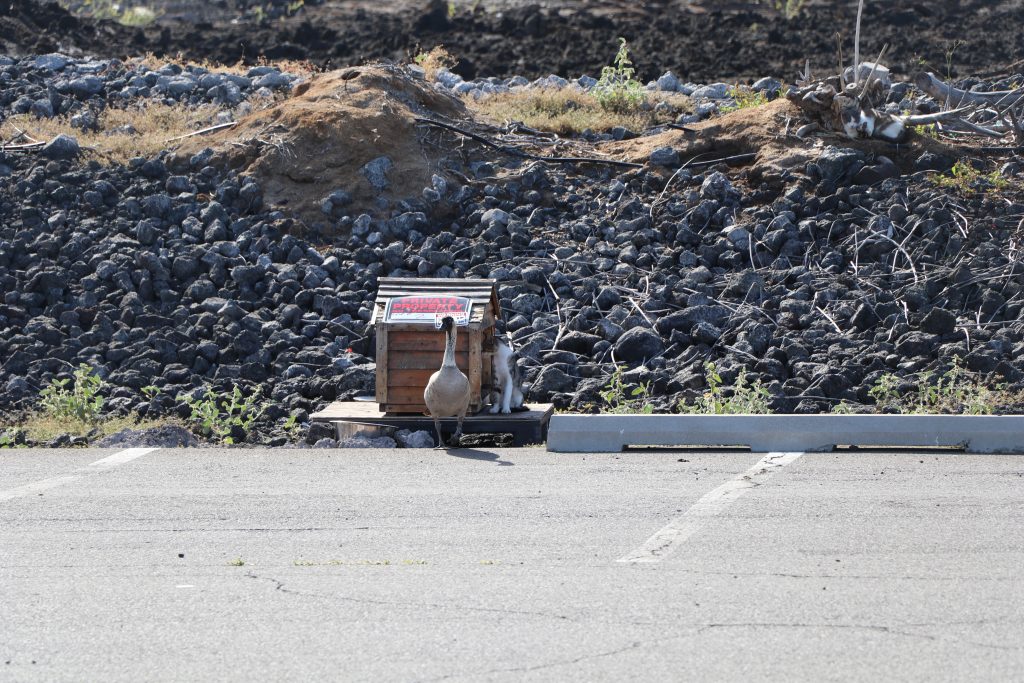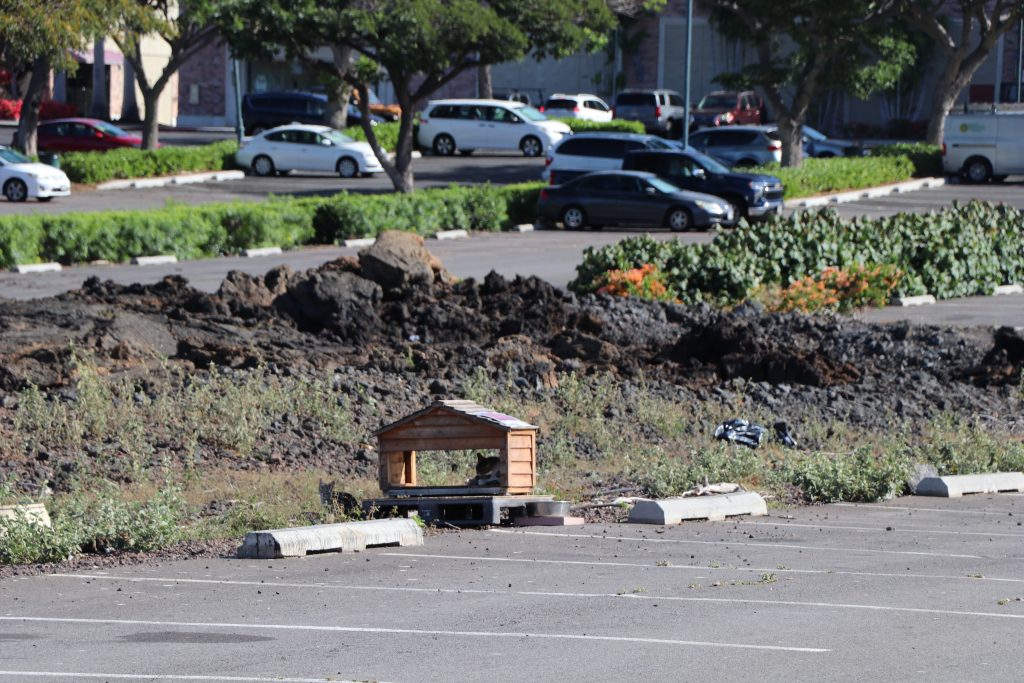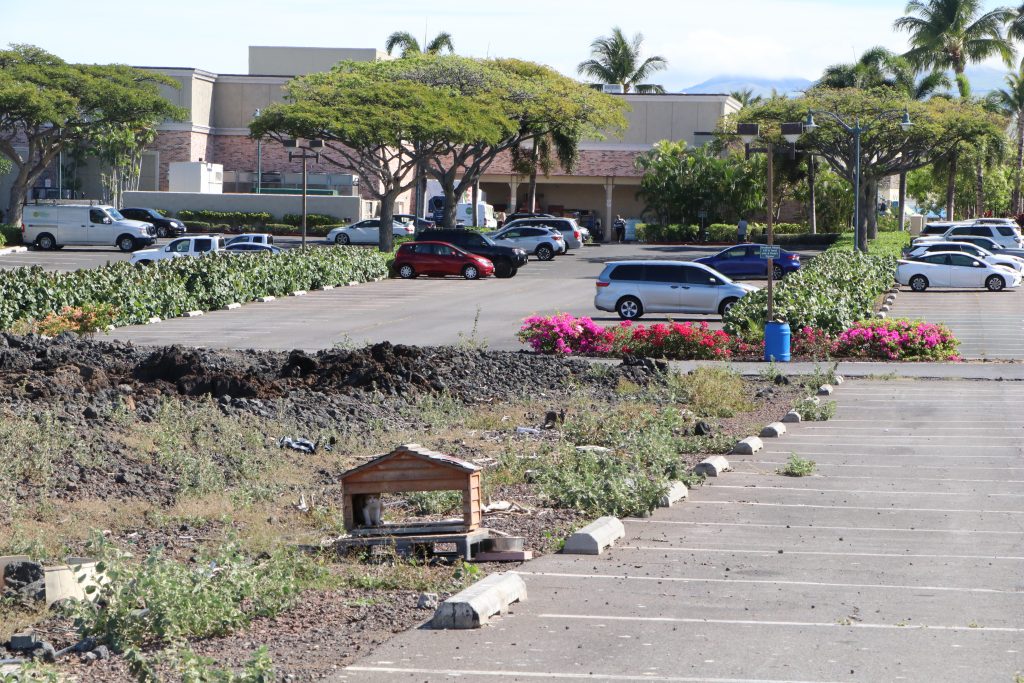Two women cited for illegal take of nēnē during a cat feeding protest
Two women were cited by officers from the state DLNR Division of Conservation and Resources Tuesday night during a protest by feral cat activists over feeding stations that are being removed.
About 50 people, some carrying large bags of cat food, showed up in a rear parking lot of the Queens’ Marketplace Shopping Center to protest the property owner’s decision to have three cat feeding stations removed, after being warned by DLNR that cat food was attracting nēnē, the Hawai‘i State Bird.
The situation came to the attention of DLNR from concerned citizens.
Both women, with Waikoloa addresses, were cited for prohibited take of endangered species (HRS 195-D), after they allegedly put bowls of cat food on the ground. Both women were also informed by a Queens’ Marketplace security officer that they were trespassing and were no longer allowed anywhere on the property. A third woman was issued a warning after being spotted pouring cat food into bowls behind a shed.
A local feral cat feeding group mobilized about 50 people to protest the decision to stop feeding feral cats at Waikoloa, according to the state Department of Land and Natural Resources.
DLNR along with the US Fish and Wildlife Service, has legal responsibility for protecting native Hawaiian species, including our nēnē. Nēnē are listed as an endangered species under Hawai‘i state law and are listed as a threatened species under federal law.
DLNR issued a news release saying law enforcement is required to take action to prevent feeding of nēnē, which is considered illegal take (a negative impact on a threatened or endangered species). Additionally, in this case the landowner is not supportive of establishing or maintaining feeding stations on their property, the release stated.
Feral cats can be serious predators of native species and can vector deadly diseases including toxoplasmosis, according to the release. For this reason, the DLNR has previously noted its support for keeping cats indoors and not feeding or maintaining cat colonies, as described in Hawaiʻi Invasive Species Council Resolution 19-2, supporting the keeping of pet cats indoors and the use of peer-reviewed science in pursuing humane mitigation of the impacts of feral cats on wildlife and people.
In a statement issued today DLNR said, “As animal lovers, we strongly believe that keeping cats indoors is better for cats and better for the native wildlife, including the nēnē, for which we are responsible.”
























_1768613517521.webp)

